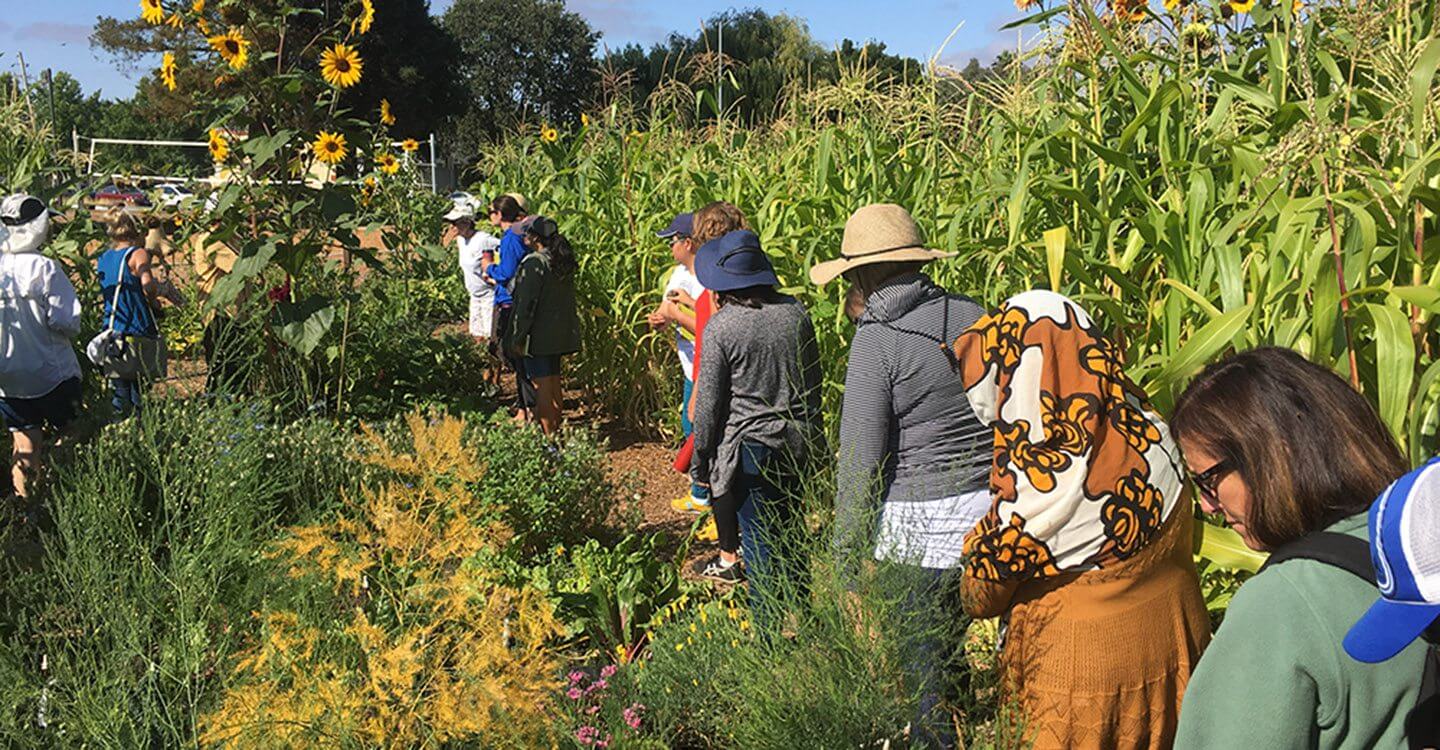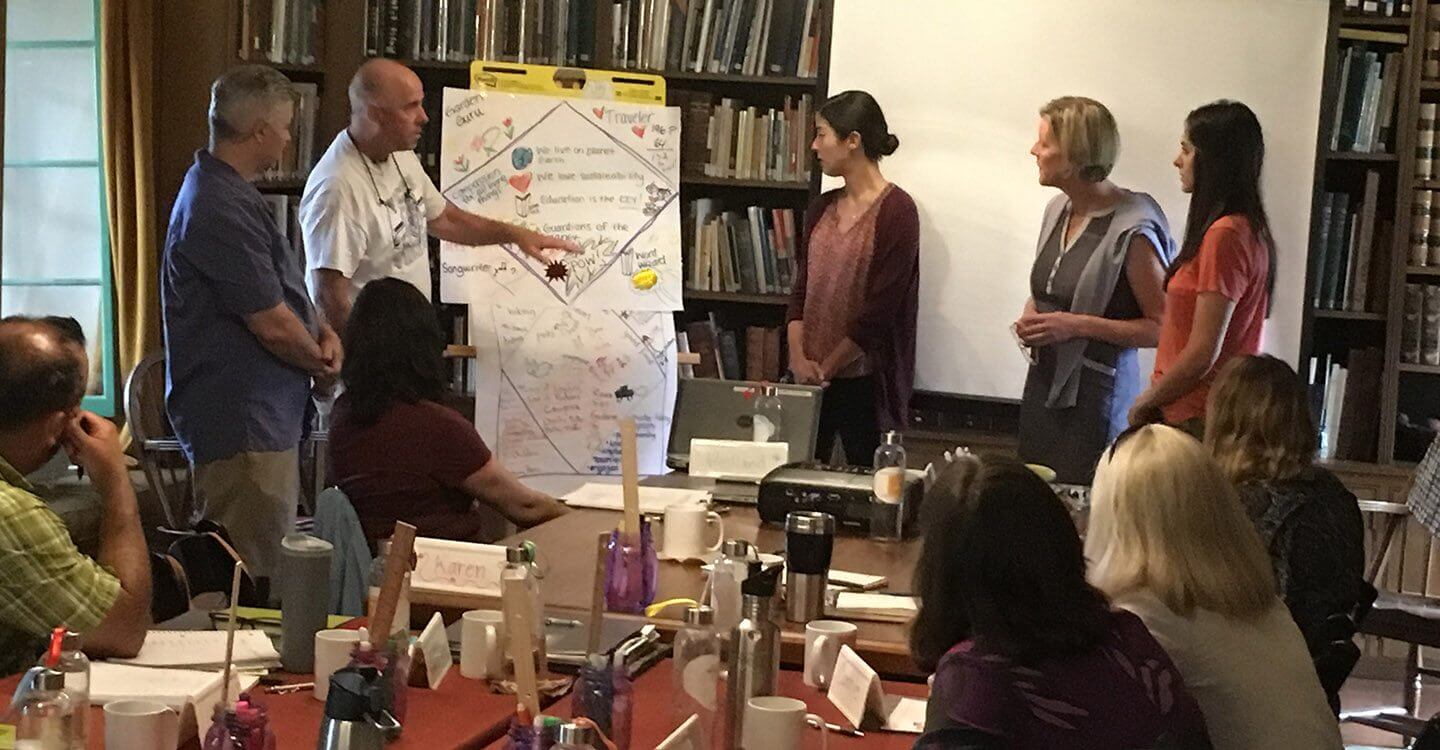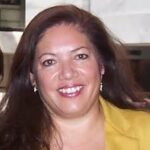How can educators better understand and teach environmental literacy in our schools? With support from California’s Environmental Literacy Steering Committee and the California Subject Matter Projects, the California International Studies Project (CISP) created a new professional learning program to address this challenge. Working with teachers in Sonoma and Long Beach this summer, CISP launched a year-long program, Teaching for Sustainable Communities: Empowering Eco-Literate Global Citizens, designed to improve global competence, environmental literacy, and active citizenship among K–12 students across all disciplines.
The program begins with a five-day summer institute featuring presentations by academic scholars and professionals working in the field of sustainability. Presentation topics include environmental justice, city sustainability or climate action plans, and indigenous cultural sustainability. Through field experiences, teachers interact with community members, local environments, and each other while learning how to integrate California’s Environmental Principles and Concepts into their curriculum and school programs. Participants learn about and practice design thinking as a strategy for student engagement around local and global issues of sustainability, and share resources and best practices for teaching global competence as well as environmental literacy. During the institute, teachers develop instructional plans for the coming school year with support from CISP Teacher Leaders. These driving questions frame their learning and their plans for students:
- What makes a community sustainable?
- How will I work alongside my students to learn about and take informed action around making our community more sustainable?
- What issues and solutions exist in my own backyard?
- How do I engage my students in learning about sustainability?
- How can I set myself and my students up to take informed action?
Teachers return to their classrooms prepared to educate and inspire students to actively pursue solutions that address sustainability issues in their lives and communities. CISP provides follow-up support through additional field experiences, such as nature hikes and tours of water treatment facilities, in addition to informative webinars and classroom coaching. Teachers in the Sonoma region are currently engaged in a virtual book club around Daniel Goleman’s book, Ecoliterate: How Educators Are Cultivating Emotional, Social, and Ecological Intelligence. Because the needs and plans for teachers vary, CISP provides differentiated follow-up support for maximum results.
Teaching for Sustainable Communities: Empowering Eco-Literate Global Citizens culminates in the spring with student exhibitions of learning and activism. Teachers determine the best venue for students to showcase their projects, ideas, and achievements among peers and the larger communities. Some teachers plan to hold a student exhibition or youth summit in their school or district, while others plan to integrate sustainability projects into programs such as World Savvy Festival, Science Fair, National History Day, Project Citizen, or Linked Learning events. With the goal of sharing student findings, ideas, and action projects and promoting active citizenship around environmental issues, some teachers encourage their students to make presentations to school boards, city councils, and local organizations for greater impact.
As a result of teachers implementing what they have learned and through student exhibitions next spring, we hope to find students as reflective as their teachers who shared the following this summer:
- I used to think that environmentalism and social justice were separate and I now realize they are deeply connected.
- I used to think I was helping the planet by recycling bottles and cans and now I know I can be a more informed participant in implementing and guiding my students to become stewards for sustainable community.
- I used to think it was best to “move on” from things/places that were broken, but now I can see that there is room for “repair” in cities and greed can be challenged.
With positive feedback from participating teachers in Sonoma and Long Beach, CISP is now making plans to bring this program to teachers in the Bay Area, Orange County, and San Diego in addition to Sonoma and Long Beach during the 2018–19 school year. If you or a colleague are interested in participating, please find more information at www.cispisglobal.org or contact me at eschell@mail.sdsu.edu.





One Response
Would love to get involved in roll out in Uganda